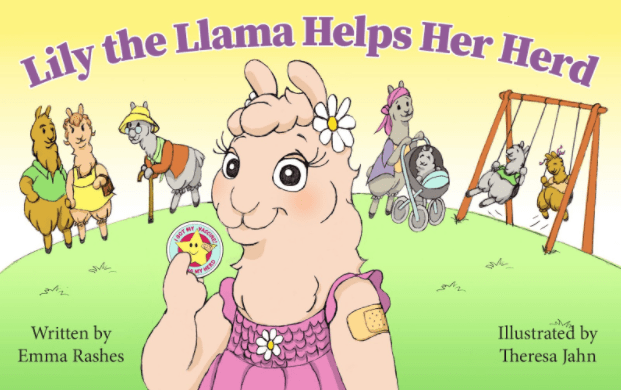Emma Rashes B.S. ’21 M.S. ’22 is a Stanford student studying biology. She recently combined her passions for advancing educational equity, science and medicine into producing a children’s book: “Lily the Llama Helps Her Herd,” tells the story of a llama named Lily and the importance of vaccination and herd immunity. The book was published in early March to encourage children and their families to get the COVID-19 vaccine. Rashes hopes to pursue a career in medicine. The Stanford Daily spoke with Rashes via email to learn about her book and how it came to be.
The Stanford Daily [TSD]: What inspired you to write “Lily the Llama Helps Her Herd”? How did your academic interests influence the content of the book?
Emma Rashes [ER]: I grew up in close proximity to anti-vaxxers and vaccine-hesitant people. My parents’ example and openness with us about the importance and safety of vaccination played a vital role in building my trust in vaccines. In the early months of the COVID-19 pandemic, I became increasingly aware of the abundance of anti-vaccine information and the lack of pro-vaccine scientific resources targeted at families and higher rates of vaccine hesitancy among communities of color in the United States. I started to think of ways that I could play an advocacy role in promoting the importance and safety of vaccines and hope that “Lily the Llama Helps Her Herd” can play a role in combating vaccine hesitancy and serve as an educational resource for families.
[TSD]: How long did you work on “Lily the Llama Helps Her Herd” before it was published? Did you always know it would be a children’s book or were there early iterations meant for a different audience?
[ER]: The book was an idea I had last summer. I then enrolled in the biology Senior Reflection, a year-long class during which seniors create a capstone project combining science and art. I reached out to virologist Dr. Shane Crotty — who advised that I address vaccine-hesitant segments of our population rather than those who are more staunchly anti-vaccination. The power of a children’s book is that it reaches the next generation, but most of its readers will be parents, the group often a main target of the anti-vaccine movement.
[TSD]: Your book is self-published. Why did you decide to self-publish and what challenges did you face?
[ER]: I realized that the primary goal for my project was sharing the book with as many individuals as possible as an educational resource. Given the rough vaccine rollout schedule outlined in December of 2020 and my desire to share the book widely for free, authors and agents alike advised me to self-publish. I have been reinvesting the proceeds from sales on Amazon to purchase paperback copies for schools, afterschool programs, community centers and clinics. Though I did “self-publish,” the project would not have been possible without the support of my many mentors throughout the Stanford community including Dr. Rishi Mediratta, Dr. Sue McConnell, Andrew Todhunter, Dr. Renee Scott, Dr. Benjamin Lindquist, Dr. Charles Prober and the Stanford Center for Health Education.
[TSD]: “Lily the Llama Helps Her Herd” was published in early March. What’s the response been to the book so far?
[ER]: Amazing! The book was trending in the top five in its category on Amazon the first week after its release, and has been viewed almost 1,500 times on Stanford Medicine’s Digital Medic website. I am really touched by the responses I have received so far and it means a lot to me that scientists that I look up to are sharing the book as a resource with their families and communities.
[TSD]: What is the future of “Lily the Llama Helps Her Herd”? Will there be a sequel or a series?
[ER]: I hope so! I so enjoyed the process of writing the book and have been quite taken aback by the warm reception, especially by pediatricians and infectious disease doctors whom I admire. The book has been translated into Spanish and Portuguese, and I am working with community partners and the illustrator to finish the book design and publish these translations in the next month. My next goals are to secure additional funding in order to donate paperback copies to communities who would benefit and partner with a national organization that could distribute the book on a wider scale.
This interview has been edited for concision and clarity.
The headline of this article has been corrected to reflect that Rashes is a current student. A previous version also misspelled Dr. Rishi Mediratta’s name. The Daily regrets these errors.
